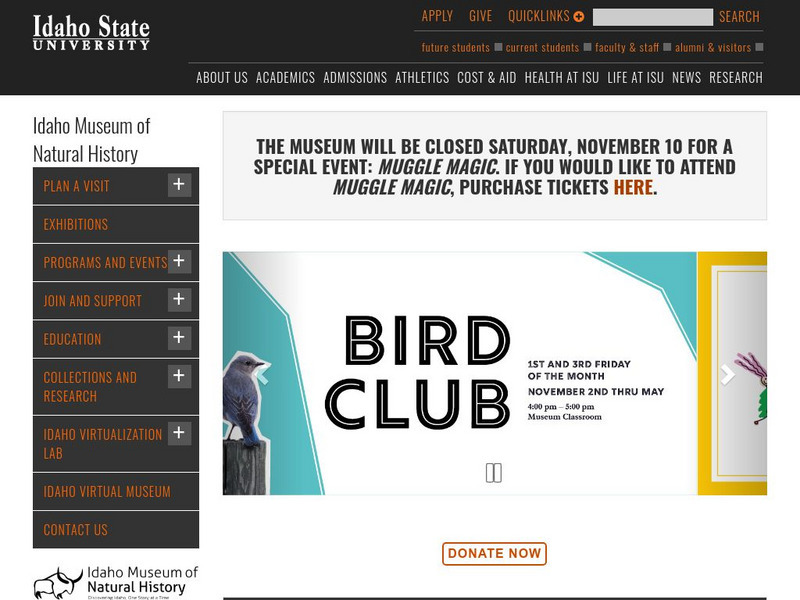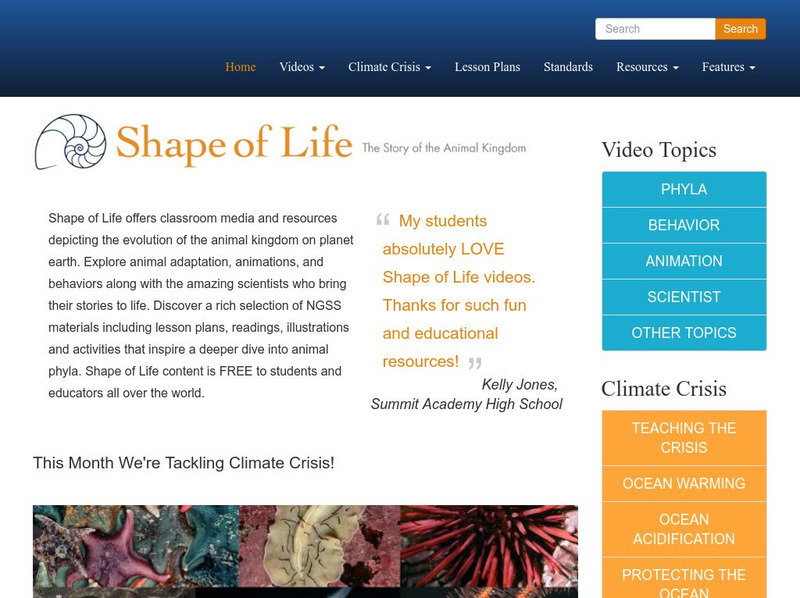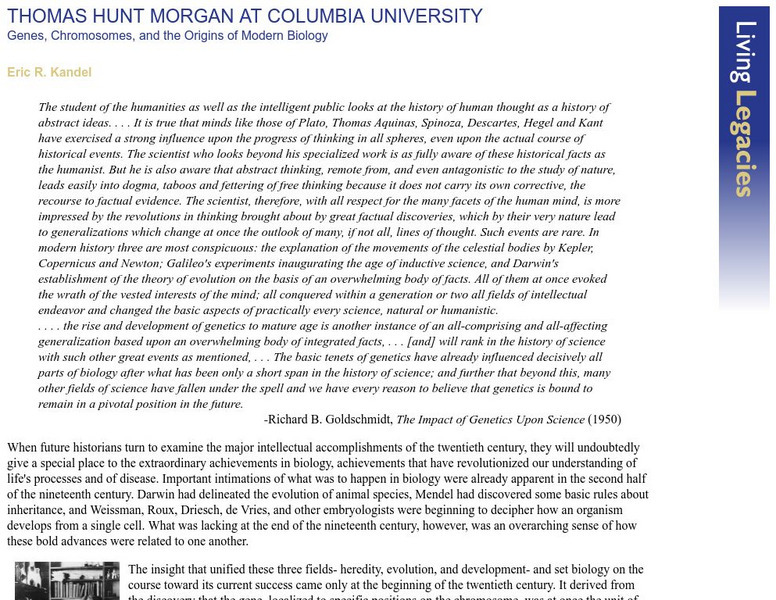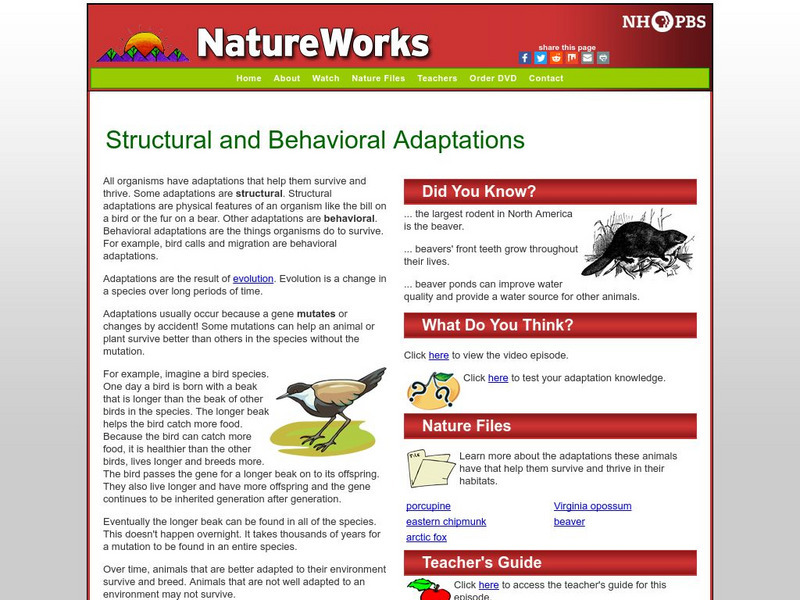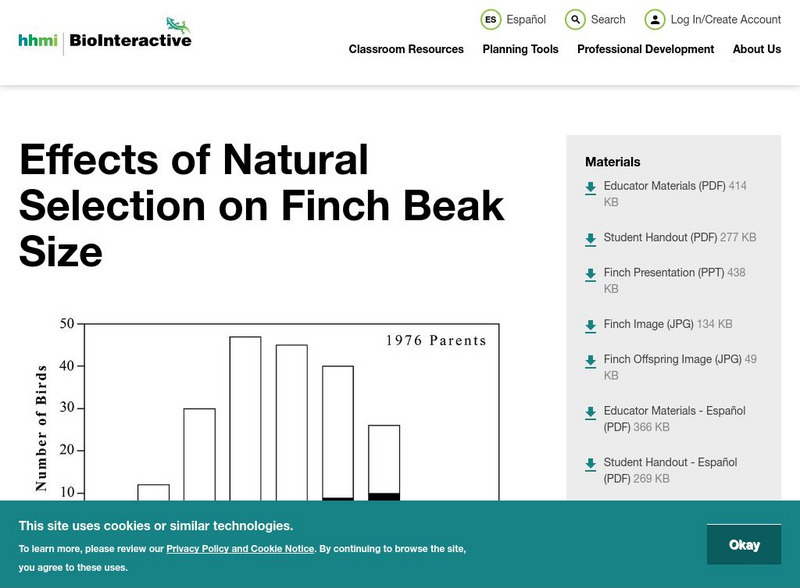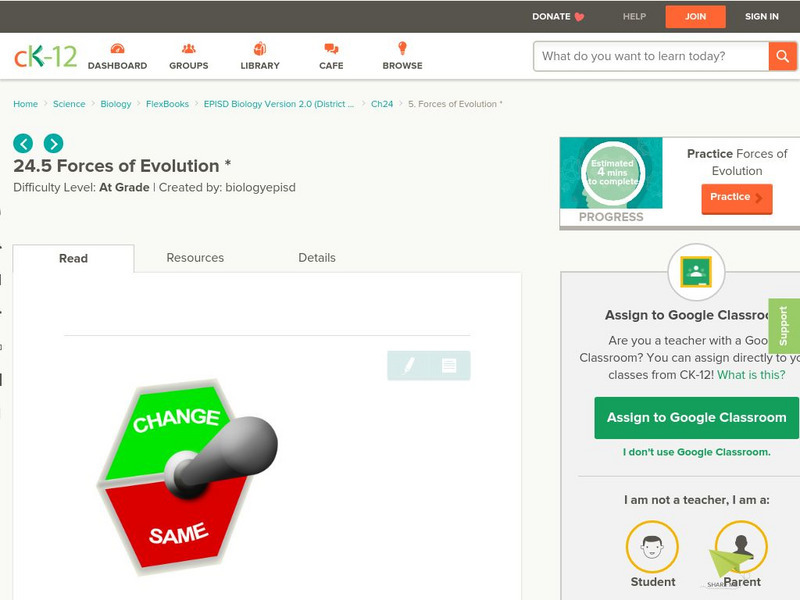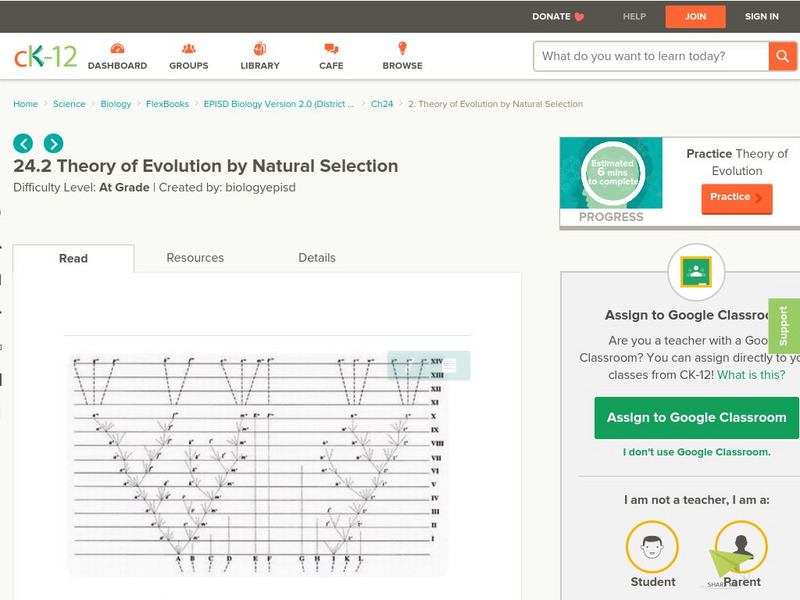San Diego Natural History Museum
San Diego Natural History Museum
This site provides general information, exhibits, museum news, etc. about the San Diego Natural History Museum.
Texas A&M University
Peer Curricula: Story Time: Thomas H. Huxley
A biography of the remarkable life of Thomas Huxley, who began his life in abject poverty, but through self-education and dedication, became a star in world science.
Texas A&M University
Story Time: Discover Scientists' Biographies
Read very accessible biographies of thirteen scientists in many fields including medicine, paleontology, genetics, chemistry, physiology, marine biology, microbiology, biochemistry, and natural selection. Emphasis is on the scientists'...
University of Utah
University of Utah: Genetics Science Learning Center: Stickleback Evolution
Compare the freshwater stickleback with its saltwater relative and trace the evolutionary changes of the fish. Includes a lecture by Dr. David Kingley, as well as an animation showing the evolution of the stickleback in an Alaskan lake.
University of Illinois
University of Illinois: The Spurlock Museum
History and description of the museum are given. Along the side of this site are links to many more interesting facts about the museum.
Idaho State University
Idaho Museum of Natural History
This site contains many links to ongoing exhibits, helpful natural history information, and other fun and educational links, including a "Just for Kids" link. Great place for the natural history bunk!
Natural History Museum
The Natural History Museum, London, England
Great site providing a "Quickindex" to find various resources. Also included are links to more information on this museum.
Natural History Museum
Natural History Museum: Human Origin Exhibit
This online exhibit from the Natural History Museum weaves together seven subtopics dealing with human origin and evolution. The topics range from Pildown man and ancient humans to modern humans and chimp research.
PBS
Pbs Learning Media: Adaptive Radiation: Darwin's Finches
Finches on the Galapagos Islands have evolved to exploit almost every possible niche. This diagram shows the range of food sources available on the island and the different beak shapes adapted to exploit each of them. Includes background...
Concord Consortium
Concord Consortium: Stem Resources: Predators and Prey
Did you ever want to be a hawk? In this virtual ecosystem, students will take on the role of a hawk and try to catch rabbits on a snowy field. Students will see which rabbits have adaptations that allow them to blend into the environment...
Sea Studios Foundation
Shape of Life: The Story of the Animal Kingdom
Shape of Life is a series of videos which explore the evolution of the animal kingdom. Discover those who study animals and the methods in which these scientists use to learn more about them.
Columbia University
Columbia University: Thomas Hunt Morgan
The site promotes the importance of Morgan and his experiments in genetics with fruit flies on the field of biology.
University of California
Ucmp: Online Exhibits
Visit the virtual exhibits at this site to learn more about paleontology, the history of the earth, and life on earth. Use the information on this site to understand geology, geologic time, evolution, and phylogeny.
PBS
Nh Pbs: Nature Works: Structural and Behavioral Adaptations
This effective site focuses on how structural and behavioral adaptations help organisms survive and reproduce.
PBS
Pbs Learning Media: Social and Historical Perspectives of Dogs
Learn more about the theory that dogs evolved from wolves in this video from Nature. [5:03]
Howard Hughes Medical Institute
Hhmi: Bio Interactive: Effects of Natural Selection on Finch Beak Size
In this activity, students examine research on finches on the island of Daphne Major in the Galapagos Islands. The depth of the finches' beaks was measured before and after a drought. This data is displayed in graphs and students are...
CK-12 Foundation
Ck 12: Episd: Forces of Evolution
[Free Registration/Login may be required to access all resource tools.] Students will explore the factors that lead to evolution such as genetic mutation, gene drift and gene flow.
CK-12 Foundation
Ck 12: Episd: Theory of Evolution by Natural Selection
[Free Registration/Login may be required to access all resource tools.] An introduction to Charles Darwin and his theory of evolution by natural selection is offered for students. Meet the writers who influenced Darwin to develop his...
PBS
Pbs: Evolution
This is the PBS Evolution site, including excellent information on Darwin, Change, Extinction, Survival, Sex, Humans, and Religion.
Texas A&M University
Eco Systems: Story Time: Stephen Jay Gould
See how Stephen Jay Gould's early interest in baseball influenced his thought process as a scientist.
PBS
Pbs Learning Media: A Cow's Digestive System
Learn how a cow eats and digests food in this video segment from Nature.
Khan Academy
Khan Academy: Activity: The Voyage of the Beagle
In this activity, you'll learn how to interpret images and maps in order to extract information about Darwin's trip to the Galapagos Islands. Links provided for a gallery of images and a worksheet.
Concord Consortium
Concord Consortium: Stebbins
Stebbins is a game about evolution. Students collect data as predators eating colored circles on a colored background, being careful to avoid the poisonous ones. Data analysis reveals how the population changes color over time, and can...
University of California
University of California Museum of Paleontology: Understanding Evolution
This resource presents extensive information for learning about and teaching evolution including an in depth course "Evolution 101", teaching materials, and a resource library.







